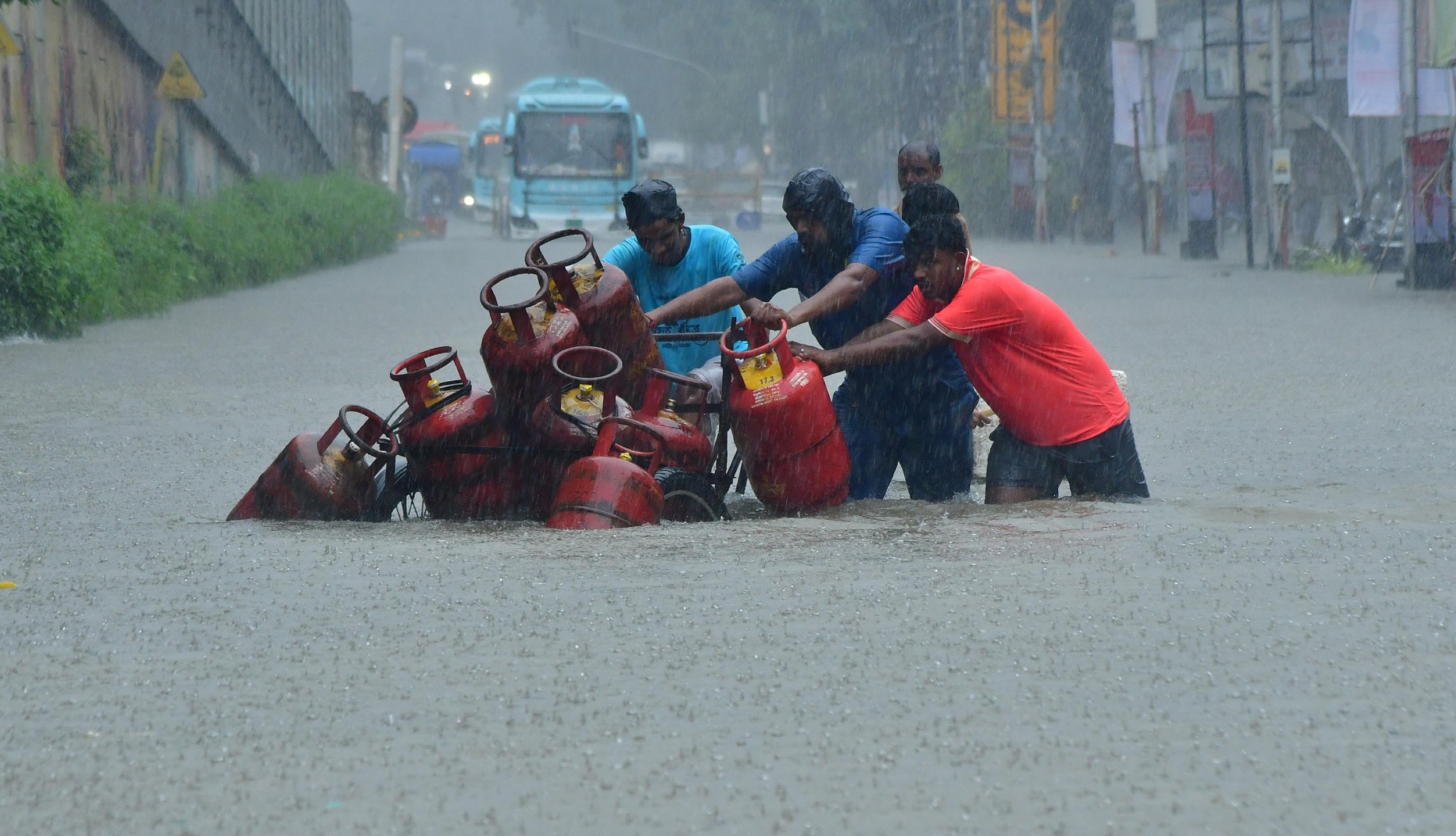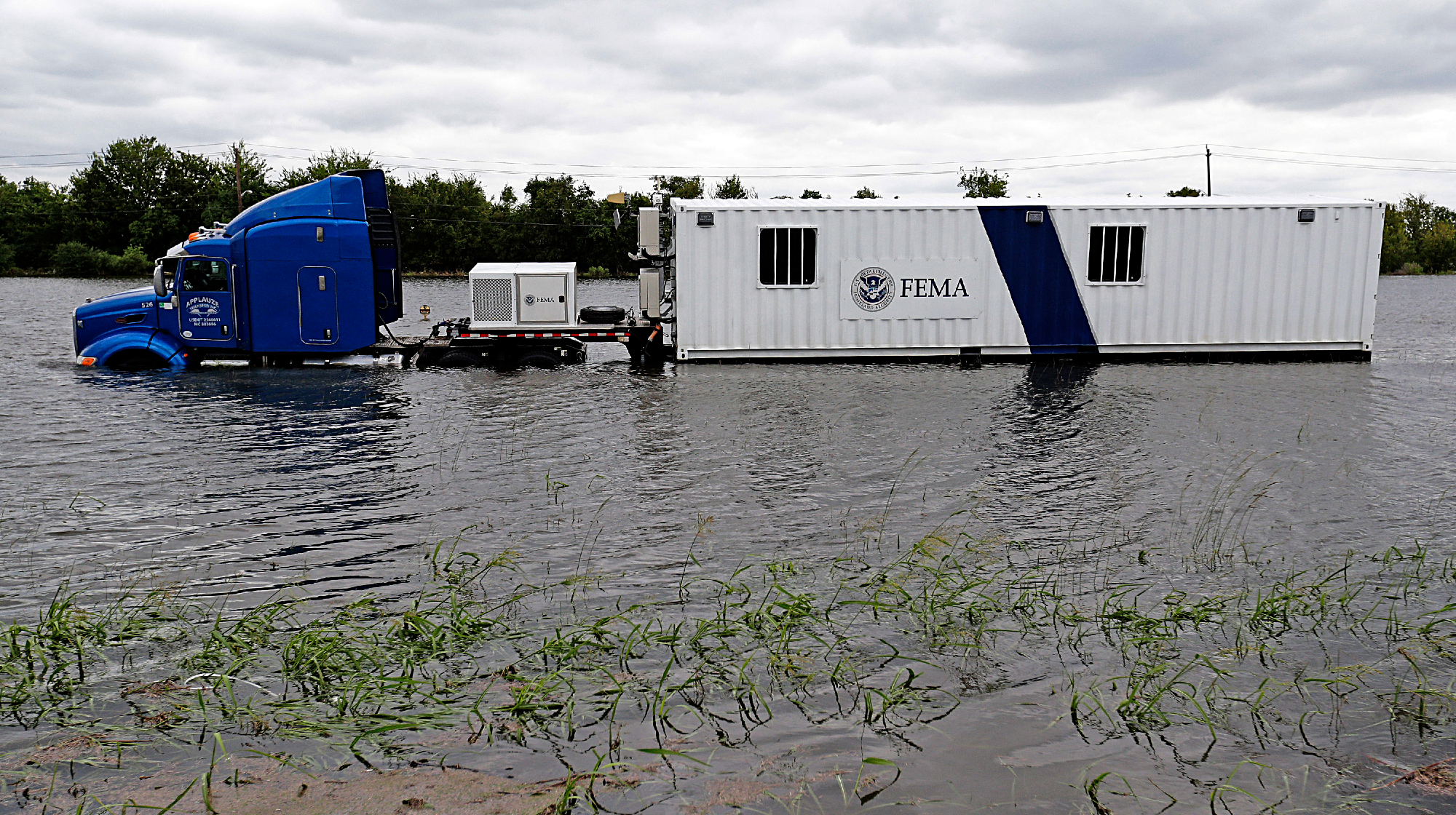Will Met Office supercomputer finally end UK’s weather chaos?
New forecasting project will cost £1.2bn of public money

A free daily email with the biggest news stories of the day – and the best features from TheWeek.com
You are now subscribed
Your newsletter sign-up was successful
Met Office weather forecasters will spend £1.2bn of public money on a new supercomputer, the biggest investment in the organisation’s 170-year history.
The billion-plus cost will cover the supercomputer’s hardware and its running costs over a ten-year period.
The government has calculated that for every pound invested, the economic benefit should be £19.
The Week
Escape your echo chamber. Get the facts behind the news, plus analysis from multiple perspectives.

Sign up for The Week's Free Newsletters
From our morning news briefing to a weekly Good News Newsletter, get the best of The Week delivered directly to your inbox.
From our morning news briefing to a weekly Good News Newsletter, get the best of The Week delivered directly to your inbox.
How does it work?
The Met Office is already using 200 billion observations from satellites, weather stations and buoys out in the ocean every day. That number is set to increase with the arrival of the new supercomputer.
The machine will handle more data at quicker speeds, and will run it through simulations of the atmosphere more accurately, says the BBC.
It will run a “digital twin” of the Earth’s atmosphere, a highly detailed model of everything happening on and around our planet, from winds to temperatures to pressures.
A free daily email with the biggest news stories of the day – and the best features from TheWeek.com
The simulation divides the model into grid squares. The current Met Office computer sections the Earth into squares that are 10km across, and just 1,500m across in the UK.
In London, the squares are 300m across, to improve the accuracy of forecasts for the airspace above the main airports.
The new supercomputer is set to divide the entire UK into squares of 100m, giving much more accurate local results.
The computer will need a massive supply of electricity, and the Met Office is inviting the potential providers to produce low-carbon options.–––––––––––––––––––––––––––––––For a round-up of the most important stories from around the world – and a concise, refreshing and balanced take on the week’s news agenda – try The Week magazine. Start your trial subscription today –––––––––––––––––––––––––––––––
What will change?
The first-stage installation will see the supercomputer able to process data six times more capably than the one used now.
And five years after that, there’ll be a major upgrade to increase performance by a further three times. And better handling of data will lead to better forecasts.
“We’ll be streets ahead of anybody else,” says Penny Endersby, chief executive of the Met Office.
“Ultimately it’ll make a difference to every individual, every government department, every industry as people see forecasts becoming steadily better.”
Met Office forecasting is in demand by everyone from the military, to power companies, to organisers of big outdoor events.
It could help the National Grid better balance fluctuations in wind and solar power as the UK transitions to more renewable energy sources.
Professor Ted Shepherd, professor of climate science at the University of Reading, said the new computer would be a “step-change in weather forecasting and climate-modelling capability for the UK”.
Will it help with future weather chaos?
The hope is that improved weather forecasting could inform the Environment Agency’s efforts in deploying mobile flood barriers.
More sophisticated rainfall predictions and accurate forecasting will help local authorities and communities to be better prepared for storms and flooding, says The Times.
Existing improvements in weather forecasting mean a five-day forecast is now as accurate as a one-day forecast was 40 years ago. Whether the new supercomputer can replicate that success is yet to be seen.
“I won’t hang my hat on getting another day in the next decade,” says Endersby. “But it will make our forecasts more accurate, more timely and more localised.”
Its digitally simulated atmosphere will also be able to help with climate change, by exploring the effects of a hotter planet.
Researchers will be able to add more detail to their projections and explore the impact of using land differently, such as planting more trees.
“This investment will ultimately provide earlier, more accurate warning of severe weather, the information needed to build a more resilient world in a changing climate and help support the transition to a low-carbon economy across the UK,” said Endersby.
The start date for the new machine will be sometime in late 2022.
-
 Why is the Trump administration talking about ‘Western civilization’?
Why is the Trump administration talking about ‘Western civilization’?Talking Points Rubio says Europe, US bonded by religion and ancestry
-
 Quentin Deranque: a student’s death energizes the French far right
Quentin Deranque: a student’s death energizes the French far rightIN THE SPOTLIGHT Reactions to the violent killing of an ultraconservative activist offer a glimpse at the culture wars roiling France ahead of next year’s elections
-
 Secured vs. unsecured loans: how do they differ and which is better?
Secured vs. unsecured loans: how do they differ and which is better?the explainer They are distinguished by the level of risk and the inclusion of collateral
-
 Death toll from Southeast Asia storms tops 1,000
Death toll from Southeast Asia storms tops 1,000speed read Catastrophic floods and landslides have struck Sri Lanka, Indonesia, Thailand and Malaysia
-
 Earth's seasons are out of whack
Earth's seasons are out of whackUnder the radar The seasons' unfixed nature in different regions of the planet may have impacted biodiversity and evolution
-
 When does autumn begin?
When does autumn begin?The Explainer The UK is experiencing a 'false autumn', as climate change shifts seasonal weather patterns
-
 Cloudbursts: what are the 'rain bombs' hitting India and Pakistan?
Cloudbursts: what are the 'rain bombs' hitting India and Pakistan?The Explainer The sudden and intense weather event is almost impossible to forecast and often leads to deadly flash-flooding and landslides
-
 FEMA Urban Search and Rescue chief resigns
FEMA Urban Search and Rescue chief resignsSpeed Read Ken Pagurek has left the organization, citing 'chaos'
-
 Europe's heatwave: the new front line of climate change
Europe's heatwave: the new front line of climate changeIn the Spotlight How will the continent adapt to 'bearing the brunt of climate change'?
-
 Why are flash floods in Texas so deadly?
Why are flash floods in Texas so deadly?Today's Big Question Over 100 people, including 27 girls at a summer camp, died in recent flooding
-
 Search for survivors continues after Texas floods
Search for survivors continues after Texas floodsSpeed Read A total of 82 people are confirmed dead, including 28 children